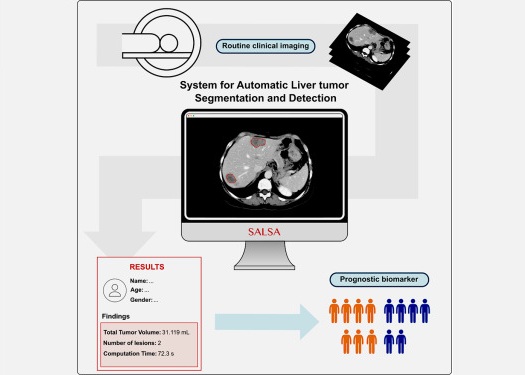First-of-Its-Kind Study to Use Advanced MRI Techniques for Testing Brain’s Ability to Adapt to Bionic Limbs
|
By MedImaging International staff writers Posted on 16 Mar 2022 |

Prosthetics can be a supportive tool for children born with missing limb to perform everyday activities, although little is known about how the brain responds to the addition of an artificial limb. A new, first-of-its-kind clinical trial will use advanced functional magnetic resonance imaging (MRI) to examine how the brain adapts to advanced, bionic arms in children born without a limb, with the ultimate goal of improving control of their prosthetic.
The four-month clinical trial will be a collaborative effort that will brings together expertise from pediatric research, neuroradiology, and bionics to examine if prosthetic developed by Limbitless Solutions, a nonprofit, direct support organization at the University of Central Florida (Orlando, FL, USA), paired with its custom training video game, will impact the motor control center of the brain. Limbitless specializes in developing advanced, muscle-based biosensing technology, such as bionic limbs, to increase accessibility and empower children and adults in the limb-different community. The customized prosthetics they create are 3D printed and can be paired with a parent’s smart phone. The devices even charge like a cell phone, via USB type C. The exteriors of the devices are artistically designed and customized, with input from each participant. Existing muscles in the residual part of a limb are used to control their function, which is triggered by a person’s own muscle flex.
Limbitless has also created video games to train the children’s muscles in anticipation of receiving bionic arms. These video games will be leveraged in the trial to support training for the use of the prosthetic limb. In the clinical trial, the researchers will closely monitor any changes in the signals the brain sends to the muscle groups that direct the bionics’ movement by using advanced functional MRI techniques before and after prosthetic use and training. Additionally, researchers will use a method known as tractography - where MRI scans visualize the nerve pathways - to identify new or more robust pathways resulting from the training. The study is unique because it combines advanced imaging techniques with novel prosthetics and video-game-based training to evaluate motor cortex engagement.
“Limited research has been conducted on how the brain’s motor cortex structure changes from congenital limb loss and subsequent use of a prosthetic,” said Albert Manero, executive director and co-founder of Limbitless Solutions, who will lead the research study on the Limbitless side as the investigator along with other UCF staff and faculty. “It may provide new insight to how the brain’s motor cortex adapts to learning how to use our organic, or robotic, limbs.”
“This research will help us see how the brain responds to the child’s newly acquired ability to use a prosthetic hand,” said Dr. Chetan Shah, MD, chair of radiology at Nemours Children’s Health, Jacksonville, Florida, and based at Wolfson Children’s Hospital of Jacksonville, who will lead the imaging work. “This is a novel way of using existing brain circuits to use an artificial limb, and most importantly, this is a life-changing device for a child both mentally and physically. We are extremely enthusiastic about this research.”
Related Links:
University of Central Florida
Latest MRI News
- New MRI Technique Reveals True Heart Age to Prevent Attacks and Strokes
- AI Tool Predicts Relapse of Pediatric Brain Cancer from Brain MRI Scans
- AI Tool Tracks Effectiveness of Multiple Sclerosis Treatments Using Brain MRI Scans
- Ultra-Powerful MRI Scans Enable Life-Changing Surgery in Treatment-Resistant Epileptic Patients
- AI-Powered MRI Technology Improves Parkinson’s Diagnoses
- Biparametric MRI Combined with AI Enhances Detection of Clinically Significant Prostate Cancer
- First-Of-Its-Kind AI-Driven Brain Imaging Platform to Better Guide Stroke Treatment Options
- New Model Improves Comparison of MRIs Taken at Different Institutions
- Groundbreaking New Scanner Sees 'Previously Undetectable' Cancer Spread
- First-Of-Its-Kind Tool Analyzes MRI Scans to Measure Brain Aging
- AI-Enhanced MRI Images Make Cancerous Breast Tissue Glow
- AI Model Automatically Segments MRI Images
- New Research Supports Routine Brain MRI Screening in Asymptomatic Late-Stage Breast Cancer Patients
- Revolutionary Portable Device Performs Rapid MRI-Based Stroke Imaging at Patient's Bedside
- AI Predicts After-Effects of Brain Tumor Surgery from MRI Scans
- MRI-First Strategy for Prostate Cancer Detection Proven Safe
Channels
Radiography
view channel
AI Improves Early Detection of Interval Breast Cancers
Interval breast cancers, which occur between routine screenings, are easier to treat when detected earlier. Early detection can reduce the need for aggressive treatments and improve the chances of better outcomes.... Read more
World's Largest Class Single Crystal Diamond Radiation Detector Opens New Possibilities for Diagnostic Imaging
Diamonds possess ideal physical properties for radiation detection, such as exceptional thermal and chemical stability along with a quick response time. Made of carbon with an atomic number of six, diamonds... Read moreUltrasound
view channel.jpeg)
AI-Powered Lung Ultrasound Outperforms Human Experts in Tuberculosis Diagnosis
Despite global declines in tuberculosis (TB) rates in previous years, the incidence of TB rose by 4.6% from 2020 to 2023. Early screening and rapid diagnosis are essential elements of the World Health... Read more
AI Identifies Heart Valve Disease from Common Imaging Test
Tricuspid regurgitation is a condition where the heart's tricuspid valve does not close completely during contraction, leading to backward blood flow, which can result in heart failure. A new artificial... Read moreNuclear Medicine
view channel
Novel Radiolabeled Antibody Improves Diagnosis and Treatment of Solid Tumors
Interleukin-13 receptor α-2 (IL13Rα2) is a cell surface receptor commonly found in solid tumors such as glioblastoma, melanoma, and breast cancer. It is minimally expressed in normal tissues, making it... Read more
Novel PET Imaging Approach Offers Never-Before-Seen View of Neuroinflammation
COX-2, an enzyme that plays a key role in brain inflammation, can be significantly upregulated by inflammatory stimuli and neuroexcitation. Researchers suggest that COX-2 density in the brain could serve... Read moreGeneral/Advanced Imaging
view channel
CT-Based Deep Learning-Driven Tool to Enhance Liver Cancer Diagnosis
Medical imaging, such as computed tomography (CT) scans, plays a crucial role in oncology, offering essential data for cancer detection, treatment planning, and monitoring of response to therapies.... Read more
AI-Powered Imaging System Improves Lung Cancer Diagnosis
Given the need to detect lung cancer at earlier stages, there is an increasing need for a definitive diagnostic pathway for patients with suspicious pulmonary nodules. However, obtaining tissue samples... Read moreImaging IT
view channel
New Google Cloud Medical Imaging Suite Makes Imaging Healthcare Data More Accessible
Medical imaging is a critical tool used to diagnose patients, and there are billions of medical images scanned globally each year. Imaging data accounts for about 90% of all healthcare data1 and, until... Read more
Global AI in Medical Diagnostics Market to Be Driven by Demand for Image Recognition in Radiology
The global artificial intelligence (AI) in medical diagnostics market is expanding with early disease detection being one of its key applications and image recognition becoming a compelling consumer proposition... Read moreIndustry News
view channel
GE HealthCare and NVIDIA Collaboration to Reimagine Diagnostic Imaging
GE HealthCare (Chicago, IL, USA) has entered into a collaboration with NVIDIA (Santa Clara, CA, USA), expanding the existing relationship between the two companies to focus on pioneering innovation in... Read more
Patient-Specific 3D-Printed Phantoms Transform CT Imaging
New research has highlighted how anatomically precise, patient-specific 3D-printed phantoms are proving to be scalable, cost-effective, and efficient tools in the development of new CT scan algorithms... Read more
Siemens and Sectra Collaborate on Enhancing Radiology Workflows
Siemens Healthineers (Forchheim, Germany) and Sectra (Linköping, Sweden) have entered into a collaboration aimed at enhancing radiologists' diagnostic capabilities and, in turn, improving patient care... Read more





















